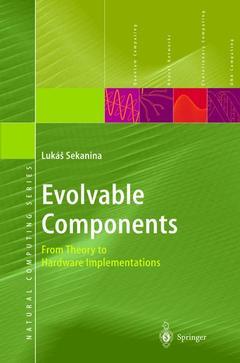Description
Evolvable Components, 2004
From Theory to Hardware Implementations
Natural Computing Series
Language: English
Subjects for Evolvable Components:
195 p. · 15.5x23.5 cm · Hardback
Description
/li>Contents
/li>Biography
/li>Comment
/li>
Lukas Sekanina received MSc degree in Computer Science and Engineering and PhD degree in Information Technology from Brno University of Technology, Czech Republic, in 1999 and 2002 , respectively. He was a visiting lecturer with Pennsylvania State University, USA, and a visiting researcher with Department of Informatics, University of Oslo, Norway, in 2001. He is author or co-author of more than 20 refereed conference papers mainly on evolvable hardware and bio-inspired computing. He was awarded Siemens Awards 1999 and 2000 and The best paper award at IEEE Design and Diagnostics of Electronic Circuits and System workshop 2002. Currently he is an assistant professor with Faculty of Information Technology, Brno University of Technology. His research interests focus on theory, design and implementations of bio-inspired computational systems.

